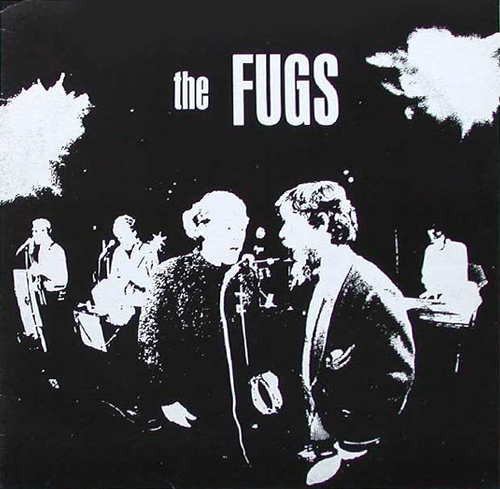[Featured Record] The Fugs
This is a series intended to focus on records that were influential or important to music or cultural history in some way. In other words, “albums you should listen to before you die.”

The Fugs – The Fugs (1966)
The Fugs’ were one of NYC’s earliest garage/proto-punk bands, influencing everyone from the Velvets themselves—Sterling Morrison considered them an “authentic Lower East Side band”—to punk (obvi) to just about everyone in the modern DIY indie landscape—most notably The Brian Jonestown Massacre (practically a Fugs cover band) and Black Lips.
Norman Mailer’s The Naked And The Dead inspired the band name—it’s a euphemism for “fuck”!—and their lyrics are 100%-drilled-to-the-bone old-time-Rock’N’Roll sex sex sex, which of course meant that Lester Bangs was a huge fan. While worshipping the sex-hounding Troggs in his infamous glamour-crushing ‘James Taylor Marked For Death‘ essay, he digressed on The Fugs’ ‘I Want To Know‘ in typical Bangs eloquence (“a very youthful song of discovery and new nooky I think I’ll start playing it when I get up in the morning”).
 They were just a bunch of anti-Vietnam druggie poets (“New York’s most fantastic protest rock and roll peace – sex – grass – psychedelic singing group who write all their own material utilizing the artistic and literary heritage of the low East Side of New York combined with the civil rights and peace movements.”), but their albums were considered so vulgar and sexual (e.g.; “I don’t even hear them / Because I’m high / and I’m gettin’ almost as much pussy as the spades” from ‘Doin’ All Right’), they got the attention of our boy J. Edgar Hoover and the FBI. This letter (from 1969) forwarded Virgin Fugs—which “contains 11 numbers by the group which are vulgar and repulsive and are most suggestive”.
They were just a bunch of anti-Vietnam druggie poets (“New York’s most fantastic protest rock and roll peace – sex – grass – psychedelic singing group who write all their own material utilizing the artistic and literary heritage of the low East Side of New York combined with the civil rights and peace movements.”), but their albums were considered so vulgar and sexual (e.g.; “I don’t even hear them / Because I’m high / and I’m gettin’ almost as much pussy as the spades” from ‘Doin’ All Right’), they got the attention of our boy J. Edgar Hoover and the FBI. This letter (from 1969) forwarded Virgin Fugs—which “contains 11 numbers by the group which are vulgar and repulsive and are most suggestive”.
The Fugs features Ginsberg-written liner notes and everything that pissed off The Man and made The Fugs influential (tongue-in-cheek sexplay, devil-may-care attitude, and druggy anarchist poetry with simple-and-catchy pop-song overtones). It’s a record that most people don’t realize was being made in 1966, and it undoubtedly gave plenty of lost little kids the childhood ammunition that would guide them to CBGB in the 70s.
Post a comment